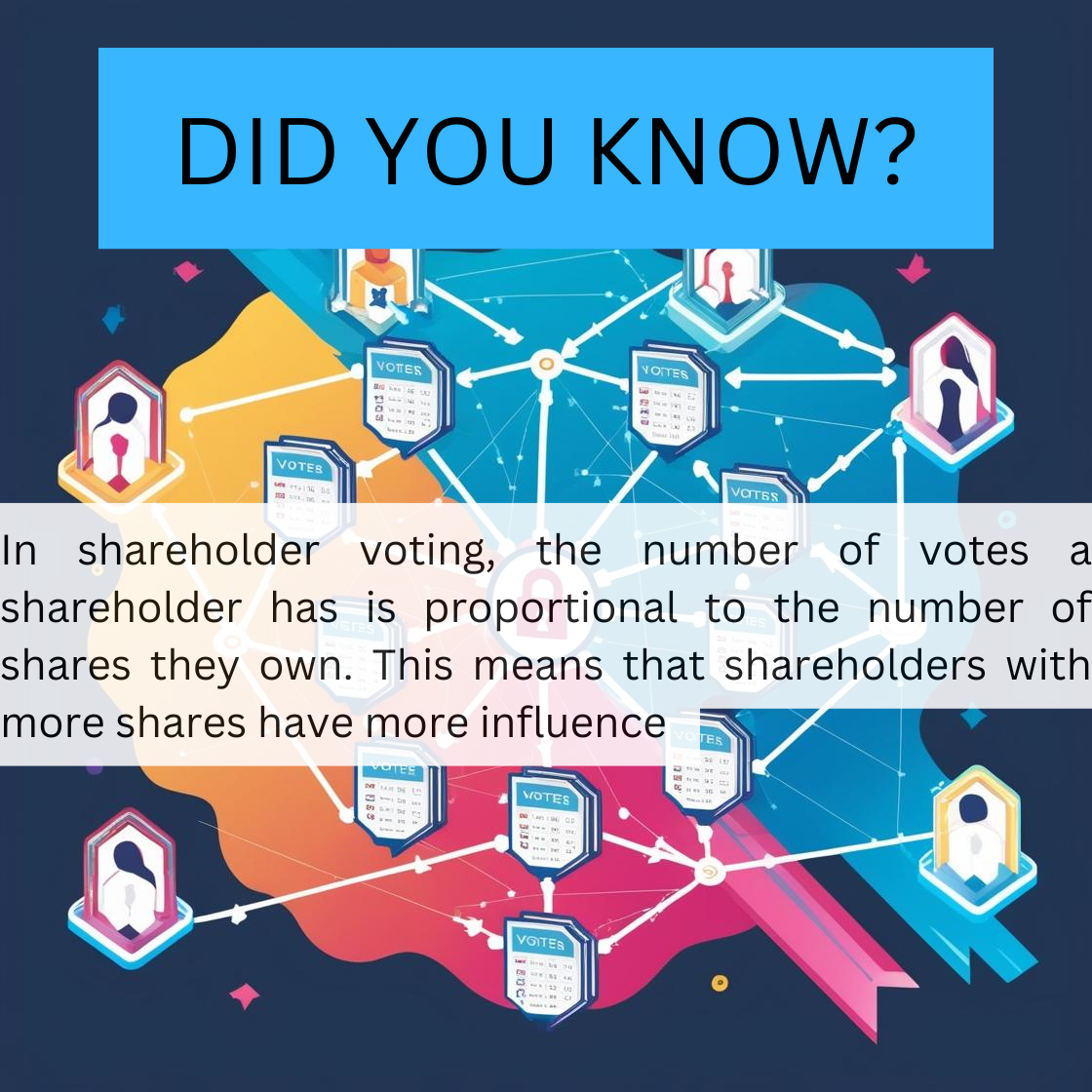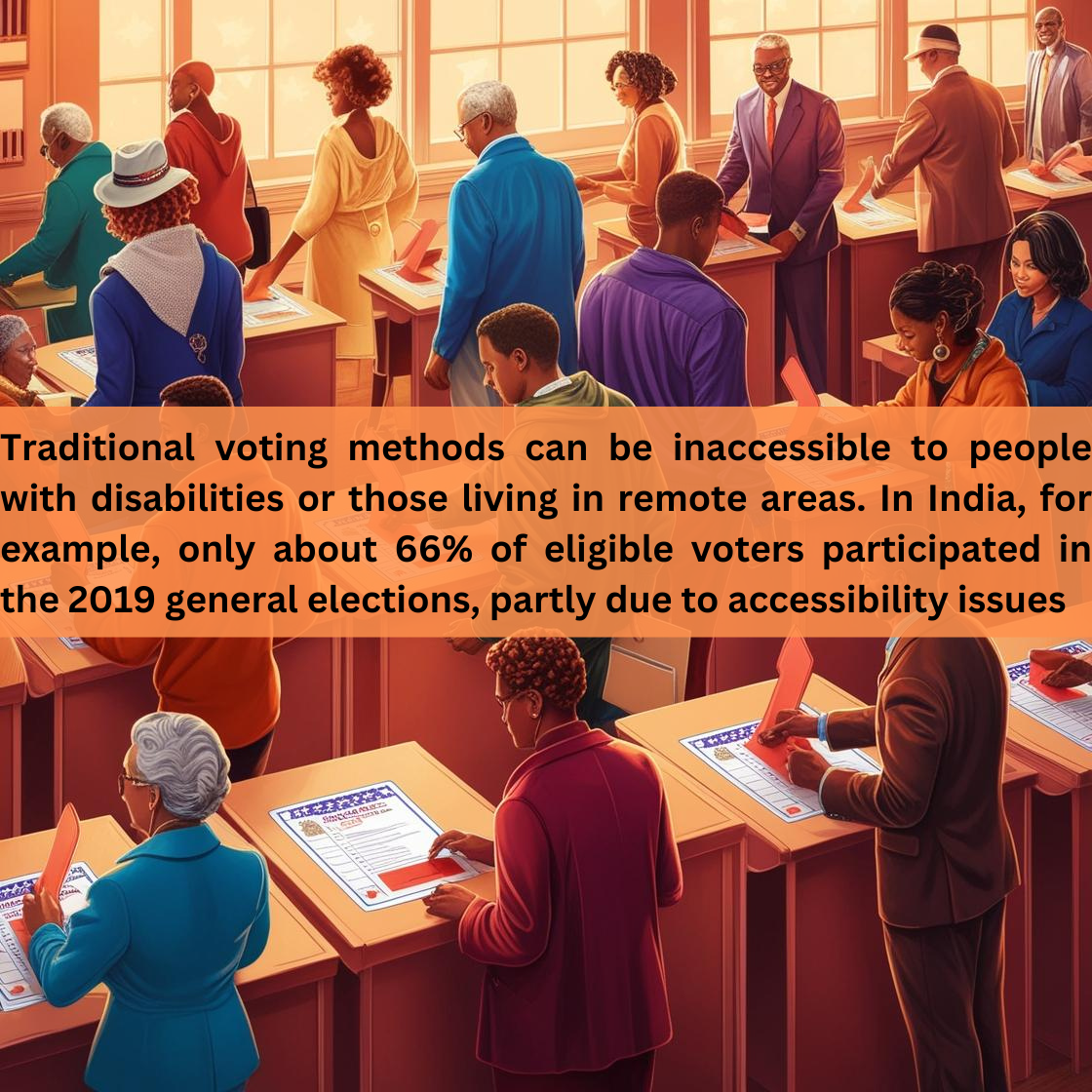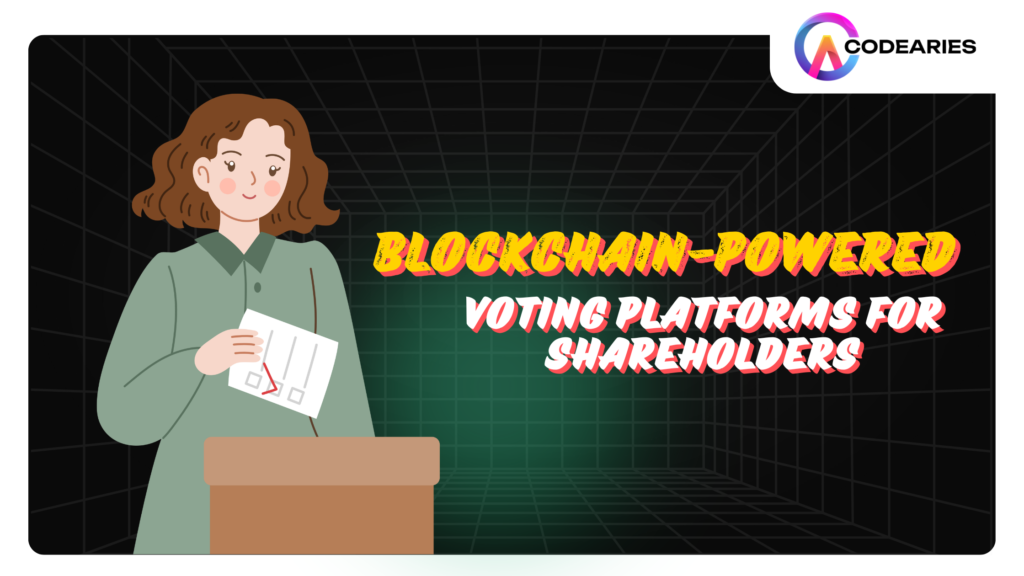Imagine a shareholder voting platform so secure and transparent that it’s practically impossible to tamper with. Blockchain-powered voting platforms bring us closer to this ideal by leveraging blockchain’s unique security and transparency features. For companies, this could mean a future where shareholders participate in decision-making with complete trust, knowing their votes are secure and easily verified.
With blockchain technology, companies can achieve levels of accuracy, accessibility, and cost-effectiveness in shareholder voting that traditional methods struggle to offer. From Fortune 500 companies to innovative startups, blockchain voting platforms are changing the game of corporate governance, giving shareholders a stronger voice and making every vote count.
Why Is Shareholder Voting Important?
In the corporate world, shareholder voting isn’t just a formality—it’s the backbone of effective governance. Voting is how shareholders steer the company’s direction, whether approving executive decisions, voting on mergers, or setting policy changes. Unfortunately, traditional voting methods often leave much to be desired:

Complexity: Voting can need to be clarified for shareholders, especially with inconsistent rules and procedures.
Limited Transparency: How can shareholders be sure their votes were counted accurately?
High Costs and Inefficiencies: Traditional voting processes can be slow and expensive, especially for large corporations.
Blockchain voting platforms tackle these challenges head-on by making the process more straightforward, more accessible, and more transparent.
How Blockchain Technology Can Revolutionize Shareholder Voting
Here’s where blockchain technology shines. With its core benefits of security, transparency, and immutability, blockchain ensures that votes are tamper-proof, easy to audit, and processed efficiently. Let’s break it down:

Security: Secure vote recording prevents tampering or unauthorized changes.
Transparency: Shareholders can verify that their votes were counted correctly.
Immutability: Votes can’t be altered once recorded, ensuring final and trustworthy results.
This tech-forward approach can reshape how shareholders interact with voting processes, making participation easier and results more reliable.
Key Components of Blockchain Voting Platforms
To understand how these platforms work, it’s helpful to look at their main components:
Identity Verification: Verifying who can vote is crucial. Blockchain voting platforms ensure only eligible shareholders participate.
Smart Contracts: These self-executing contracts automatically tally votes, making the process fast and accurate.
Cryptographic Security: Advanced encryption keeps votes safe, ensuring privacy and security.
By working together, these elements create a system that gives shareholders peace of mind, knowing their votes are secure and untampered.
The Problems with Traditional Shareholder Voting
Traditional shareholder voting has long been plagued with issues:

Absentee and Proxy Voting Challenges: Shareholders who can’t attend voting events in person often vote by absentee ballot or proxy, leading to delays and errors.
Opaque Vote Counting: Limited transparency makes it hard for shareholders to trust that the system accurately counts their votes.
High Costs and Resource Demands: Traditional voting is costly and time-intensive, especially for large, global companies.
By addressing these issues, blockchain technology allows for a more straightforward, trustworthy voting process.
The Benefits of Blockchain-Powered Voting
Switching to blockchain-powered voting could bring a wealth of benefits to companies and shareholders alike:
Accurate and Fraud-Free Voting: Blockchain’s security features prevent anyone from changing a vote once it is recorded.
Better Participation: Simplified voting processes can lead to higher engagement rates.
Reduced Costs: With blockchain, companies can cut out intermediaries and automate processes, saving time and Money.
Imagine logging in, casting your vote, and instantly receiving confirmation that your vote counted—without dealing with a mountain of paperwork or waiting in long lines.
The Role of Smart Contracts in Blockchain Voting
Smart contracts are at the heart of blockchain-powered voting. Here’s how they work:
Vote Automation: Smart contracts automatically validate each shareholder’s eligibility to vote and record votes.
Real-Time Tallying: Results are tallied in real time, offering instant insights into voting outcomes.
Secure and Error-Free: Smart contracts minimize human error and maximize security by automating the process.
These self-executing contracts make voting faster and more secure, leaving no room for manipulation.
Case Studies: Who’s Using Blockchain for Shareholder Voting?
Blockchain-powered voting platforms aren’t just theoretical; they’re already in action. Consider these examples:
Santander: In 2018, Santander conducted a blockchain-powered shareholder meeting, ensuring each vote could be independently audited.
Broadridge Financial Solutions: Broadridge offers a blockchain voting platform that provides institutions with secure, efficient voting tools.
These real-world implementations showcase how blockchain transforms the voting experience, creating efficiency, security, and accessibility.
Overcoming Regulatory and Privacy Challenges
Blockchain voting must adhere to strict regulatory standards and privacy laws. Companies must navigate various rules for data handling and ensure compliance with corporate governance regulations. Here’s how blockchain platforms address these concerns:
Privacy-First Design: Blockchain platforms often use encryption and anonymization techniques, protecting shareholder identities.
Global Compliance: Voting platforms meet international standards, offering companies secure and compliant voting tools.
As regulations evolve, blockchain platforms will continue to adapt, ensuring they meet legal standards without compromising security.
Balancing Transparency with Privacy in Blockchain Voting
Transparency is a huge advantage of blockchain voting, but what about privacy? Companies must protect shareholders’ identities while ensuring transparency, and blockchain is uniquely equipped for this:
Anonymized Voting Records: Votes are visible on the blockchain without revealing personal details.
Advanced Privacy Features: Zero-knowledge proofs and encryption protect identities while enabling vote verification.
This way, shareholders can confidently participate, knowing their private information will not be exposed.
Conclusion: Why Blockchain Voting is the Future of Shareholder Governance
Blockchain-powered voting platforms transform shareholder voting from a complex, time-consuming process to a streamlined, transparent, and secure experience. Blockchain voting platforms simplify shareholder participation and ensure they count, accurately record, and audit each vote.
Whether you’re an individual shareholder or a large corporation, the shift to blockchain voting promises a future where your vote truly counts—securely and transparently.
FAQs
Which companies are using blockchain for voting?
Companies like Santander and Broadridge have adopted blockchain for secure shareholder voting, enhancing transparency and efficiency. Other notable adopters include NASDAQ, which uses blockchain in corporate voting trials, and Kaspersky Lab for internal voting applications.
How does blockchain reduce voting costs?
Blockchain reduces costs by removing the need for intermediaries like manual verifiers and centralized systems. By automating vote validation and record-keeping processes, blockchain decreases administrative workload and cuts expenses, making voting more efficient and cost-effective.
Are there privacy risks in blockchain voting?
Blockchain voting uses advanced encryption methods, such as zero-knowledge proofs and end-to-end encryption, to protect voter identities and ensure data privacy. While blockchain reduces privacy risks, organizations must maintain robust security protocols to protect against potential digital vulnerabilities.
Will blockchain fully replace traditional voting systems?
Due to its transparency and efficiency, blockchain voting will likely become more widely used, especially for shareholder and corporate governance voting. However, certain elections may continue using traditional systems as organizations test and improve blockchain’s scalability and reliability over time.







